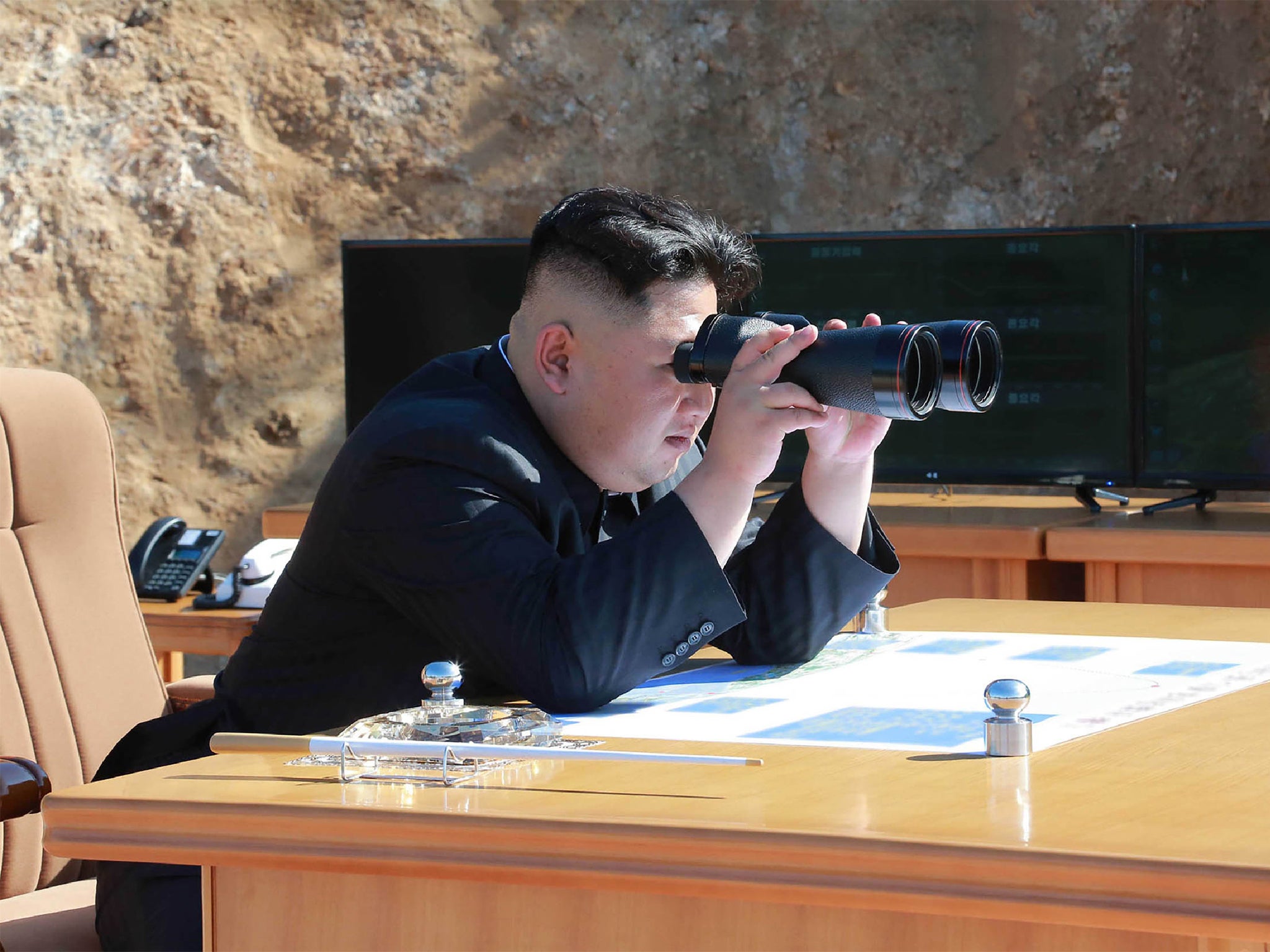North Korea launches short-range missiles
Test perceived as warning shot to US, which has imposed strict sanctions on Pyongyang

Your support helps us to tell the story
From reproductive rights to climate change to Big Tech, The Independent is on the ground when the story is developing. Whether it's investigating the financials of Elon Musk's pro-Trump PAC or producing our latest documentary, 'The A Word', which shines a light on the American women fighting for reproductive rights, we know how important it is to parse out the facts from the messaging.
At such a critical moment in US history, we need reporters on the ground. Your donation allows us to keep sending journalists to speak to both sides of the story.
The Independent is trusted by Americans across the entire political spectrum. And unlike many other quality news outlets, we choose not to lock Americans out of our reporting and analysis with paywalls. We believe quality journalism should be available to everyone, paid for by those who can afford it.
Your support makes all the difference.North Korea has fired several short-range missiles from its east coast, South Korea’s military said, amid growing tensions with Washington following a failed nuclear summit in February.
South Korean and US authorities are analysing details of the missiles, which were fired towards the east from the Hodo peninsula at around 9am local time.
The missiles flew distances ranging from 70kms to 200 kms (44-124 miles), according to South Korea’s joint chiefs of staff.
The South Korean government said it was “very concerned” about the test launch and urged Pyongyang to resume nuclear negotiations.
US secretary of state Mike Pompeo has held telephone talks with the South Korean and Japanese foreign ministers. In a terse statement, White House press secretary Sarah Sanders said: “We are aware of North Korea’s actions tonight. We will continue to monitor as necessary.”
It marks the first major test since November 2017, when Pyongyang declared its nuclear force complete after firing an intercontinental ballistic missile (ICBM) before raising hopes of a reduction in tensions by agreeing to talks with the South and the US.
Its leader, Kim Jong Un, has vowed to no longer test nuclear weapons or ICBMs, but the North has conducted other weapons tests since then.
The missile firing, coming after the North’s test of what it called a tactical weapons system, added to the pressure it has exerted on Washington in talks on ending the North’s nuclear programme.
“It also seems clear that North Korea is angry over what appears to be a lack of flexibility in the Trump administration’s position on relieving sanctions, sticking to a policy of ‘maximum pressure’,” said Harry Kazianis at the Centre for the National Interest, a think-tank.
Kim has held two summit meetings with President Trump, the second in February in Vietnam, but the two failed to make progress on ending the North’s nuclear programme due to disagreement on weapons dismantlement and sanctions relief.
Additional reporting by agencies
Join our commenting forum
Join thought-provoking conversations, follow other Independent readers and see their replies
Comments